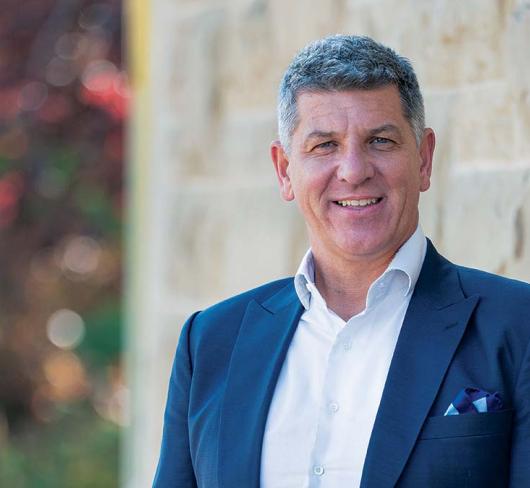
Taking Time To Learn: Strategies for Surviving While Smiling
Like learning to skate, becoming a successful teacher is easier with a helping hand, according to Annamari Pouti-Fletcher. The Windsor area teacher has reaped a lot of benefit from ETFO’s new teacher workshops.
While new teachers face unusual challenges that require extra support, the challenges for occasional teachers are even greater: isolation, lack of a peer network, and the ongoing difficulty of adjusting to different school environments and different student groups can make the life of an OT an ordeal that has to be endured on the way to a permanent contract.
“Occasional teachers are often isolated out in the schools,” says Donna Chapman, vice-president of the Toronto Occasional Teacher Local. “They have traditionally received little support and had limited access to professional development.”
To address that need, ETFO has launched a four-part professional learning program to support both new full-time and occasional teachers as they begin their careers.
Facilitated by teacher members, “Strategies for Surviving While Smiling” is full of practical ideas and strategies to help new teachers develop a positive, effective learning environment in their classroom. The program focuses on
- creating community and building relationships through cooperative learning, understanding equity, and differentiated learning
- developing classroom management and conflict resolution strategies
- promoting effective communication and ongoing assessment and evaluation practices.
The decision to run a four-part series was intentional: this format offers new teachers a chance to network, discuss their issues and questions, and develop collegial relationships with their colleagues.
Annamari Pouti-Fletcher, a member of the Greater Essex New Teachers’ Committee, was a participant in the New Teacher Series in Windsor last fall. She feels she was fortunate to have been able to attend. “During the four evenings we were able to share, reflect, participate and build confidence. We also each received a resource binder filled with useful information and ideas,” Pouti-Fletcher recalls. “The atmosphere was supportive. The singing and dancing (and laughter that resulted) were definite indicators of our enjoyment and willingness to learn new things.”
The multisession format of this program has proved particularly beneficial for occasional teachers. The Toronto Occasional Teacher Local has over 3,000 members, many of them new to the profession. It was the first OT local to take part in the new teacher workshops. This four-part series helped members feel connected not only to their local, but also to other members and to the provincial office.
“With this series, our members feel a part of something,” said Donna Chapman, who coordinates the program. “Networking became a valuable spinoff as our members on long-term occasional contracts found other members in similar situations. Through networking and dialoguing, members supported each other and problem-solved while validating what each teacher was doing well.
“From our local executive’s point of view, we were hearing and learning about what our members needed – they became the eyes and ears of our organization.”
Chapman and Marion Mutton, the local president, went the next step and organized a range of additional professional development sessions on topics like setting up your classroom, classroom management, interview skills, and parent-teacher conferences.
“We see the benefits of professional development for occasional teachers. Our members who participate fully are usually the ones who have a ‘leg up’ in getting a contract position and long-term occasional contracts,” said Chapman.
“We are here to support our members on many levels, including professional development. By offering quality PD, we discovered that our members became more connected to their union. A loyalty developed.”
Annamari Pouti-Fletcher likens the experience of participating in the workshops to putting on skates after many years off the ice: “It had been a few years since I’d been out there, the ice looked terribly intimidating and I worried about looking and feeling wobbly on my skates.
“I put on a brave face and reminded myself that I had what it took to get around without falling. My ankles did feel like rubber, but I paused to tighten my laces and after a few more times around, I felt that things were going fairly smoothly.
“That was when I happened to notice someone else preparing to venture out on to the ice. She was holding her friend’s arm but she looked so fearful of being wobbly that I stopped and, reaching out my arm, offered to help. With support, a few quick tips and lots of encouragement, she forgot her fear just long enough to feel herself gliding along. Within a matter of minutes she was skating all by herself.
“She was, as a matter of fact, surviving while smiling, while my outstretched arm acted like our ETFO local – providing the supportive hand.
“For new teachers who may at times feel ‘wobbly,’ I highly recommend this ETFO workshop series as a valuable way to help explore strategies for surviving while smiling within an atmosphere of fun and support.”
